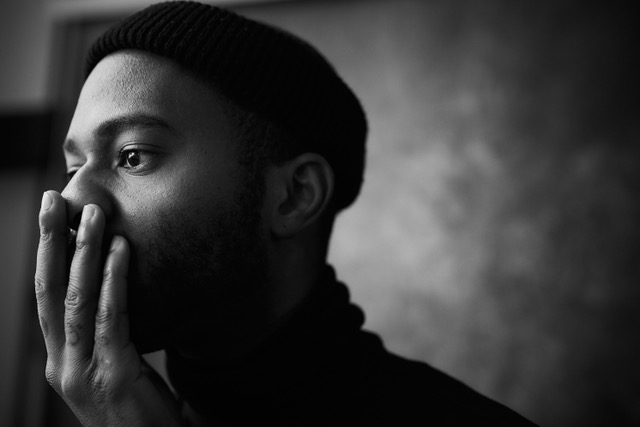Jesus was a retreat leader, and we should follow His example. However, His retreats were different from our idea of a retreat. We picture a luxurious conference center with a meticulously planned schedule and sumptuous meals. Jesus lived a little differently.
Matthew records how Jesus emerged from His “retreat” (Matthew 14:13 JBP) — a location described as “desolate” or “deserted.” Time and again Jesus retreated from the crowds to pray and be alone (Mark 1:35; Luke 6:12). For someone who was always filled with the Spirit and always in sync with the Father’s will, the Master needed retreat time — time alone and away from the busyness of life and the crush of ministry opportunities. If the Son of God needed this time how much more should I practice retreating!
Jesus needed time for what we call “leisure” but this leisure is not what it appears to be. The Greeks and Romans considered leisure as “a time free from the obligations of work that could be dedicated to the pursuit of wisdom.” Our word for “school” derives from skole, the Greek word often translated “leisure.” Leisure is a time for lifelong learning.
Leisure is an intentional time that breaks the chains of our life routines and our tethered relationship with our smart phones. Leisure invites us to stop, think, and daydream; we retreat to ask hard and thoughtful questions that reveal our assumptions, values, and beliefs. It’s hard work to be a retreat leader and practice leisure but there are two good reasons why we need to retreat.
Leisure helps us distinguish between purpose and meaning. Purpose is all about our goals, our achievable objectives. It’s important to assess our goals and celebrate our accomplishments but meaning is different. Meaning is about the “why:” Why are these goals important? What do I really want to accomplish? What do the goals reveal about my values? Meaning is about depth and change; purpose is about accomplishment.
If we fail to discern meaning and focus only on purpose, we end up following the latest fad or popular author, ping-ponging back and forth in our effort to find the perfect approach so we can accomplish more, be more productive, or raise our esteem as leaders. We easily rely on “intellectual mercenaries” — the popular author or seminar leader — paying for others to think for us as we read their books and attend their seminars. Instead of leading we end up following; we may be purposeful but not meaningful.
Finally, withdrawing or retreating is a counter-cultural tool helping us not to “become so well-adjusted to our culture that we fit into it without even thinking” (Romans 12:2 MSG). Leisure gives time to question the currently accepted practices and assumptions. We now have the leisure time to explore how the Bible speaks to these areas.
How can we be retreat leaders and practice a life of leisure?
Stop. The Chinese ideogram for “busy” is made up of two characters, “heart” and “killing.” Speed can kill our hearts! We were not made for perpetual motion. As a “retreat-leader,” Jesus regularly stopped and stepped away from the push of the crowds. In most cases, it’s recorded that he retreated to pray. To do this, he had to stop.
Stopping can be a few minutes, a few hours, or a day. One simple question I ask myself when I take time to stop is “What is God teaching me about ___________________?” The question could be connected to my current life or a topic that I want to explore in life or ministry.
- Be curious. Curiosity is being an intellectual explorer. Like the explorers of old, we wonder what is across the ocean, on the other side of that mountain, or underneath the water. Our curiosity prompts us to ask questions, to explore new places, to wonder about things. Curiosity leads to new insights and innovative thinking, but it requires time, leisure time. Speed is not good for curiosity.
- Savor. The Genesis accounts show us a God who likes to savor what He’s created; resting to declare His creation “good” (Genesis 1:31; 2:2). Savoring is hard for me. I’ve trained myself to focus on objectives, to accomplish tasks, and to “redeem the time.” These are traps for me.
When I’m caught in this performance trap, I no longer enjoy our Lord or how He is present in this moment. Leisure helps me follow God’s example by stopping, folding my arms, and enjoying what is around me — savoring His work, the pleasure of people, or the beauty of my surroundings. Savoring is declaring that this is good. This leisure leads to worship; time where I “Step out of the traffic! Take a long, loving look at me, your High God” (Psalm 46:10 MSG).
We must be retreat leaders; men and women who step out of the traffic to stop, be curious, and savor. Retreat leaders practice leisure so that we have meaning-filled lives rather than only productive ones; lives of “being” and not just “doing.” When will you schedule some leisure this week? Take a journal with you and record what you learn when you stop, exercise curiosity, and savor life. Let’s model Jesus and be retreat leaders.



Leave a Reply